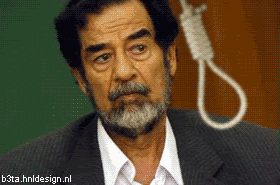If DHS is Killing Philadelphia Children, Why Not Ban It , Too?
Because, sometimes, it isn't some trigger-happy punk that does the deed,...
For decades, Philadelphia's Department of Human Services paid private contractors tens of millions of dollars to check on vulnerable children but did little to make sure those checks were actually happening.
An Inquirer review found an oversight system that amounts to little more than a paper shuffle, where auditors review forms yet seldom talk to the people they're supposed to help.
"It's clear to all of us that DHS got sloppy in its oversight; that is certainly an understatement," said Frank Cervone, a child-welfare advocate serving on a mayoral panel charged with cleaning up the department.
Typically, when DHS child-abuse workers see warning signs of abuse or neglect, they hire private contractors to help protect children at home and keep families together. The department relies on this program, known as Services to Children in Their Own Homes, or SCOH, because DHS workers don't routinely visit clients. They oversee 40 contractors who care for nearly 7,000 city children every year.
But an Inquirer review of hundreds of city performance evaluations and contracts, along with interviews with officials and private caseworkers, uncovered a system riddled with flaws. Among them:
Audits show that DHS cited some providers for the same failures year after year and then ignored its own recommendation that those contractors stop receiving cases. In 30 years, records show, DHS officials terminated just three of them.
Unlike some other cities, Philadelphia does not require private providers to bid competitively for work. Two years ago, when City Council pushed for bidding rules for those contracts, DHS officials succeeded in killing the proposal, saying it would decimate the relationship between providers and the families they serve.
As far back as 1988, auditors have urged DHS to strengthen its oversight of welfare workers. Again in 1997, auditors made similar findings. But DHS took little action.
Such lapses can have tragic consequences.
Last summer, Danieal Kelly, a 14-year-old with cerebral palsy, died of neglect while DHS and a private provider, MultiEthnic Behavioral Health, were supposed to be checking on her.
After revelations about her case, Mayor Street dismissed the top two officials in DHS and appointed the reform panel.
State and federal prosecutors have launched criminal investigations into MultiEthnic amid allegations that a company caseworker stopped showing up at the Kelly home. A lawyer for MultiEthnic said the firm bore no responsibility for Danieal's death and that its records showed 18 visits to the Kelly home in the two months before the girl was found dead.
City records show DHS gave "outstanding" marks to MultiEthnic, according to the most recent evaluations made available to The Inquirer. "Extremely energetic," the department raved, saying caseworkers worked nights and weekends to meet with families.
The panel on which Cervone serves is studying 52 cases of children who died in the last five years after they or their families came to the attention of DHS. The panel's findings, due out tomorrow, are expected to fault weak oversight of the contractors.
(snip)
Meanwhile, the department has stopped sending new clients to five providers and terminated its contract with two more, including MultiEthnic.
(snip)
With its $600 million budget, DHS spends more tax money than any other city department.The department spends 85 percent of its money, the bulk of which comes from federal and state sources, on outside contractors. They run programs that include parenting classes, drug treatment and foster care.
(snip)
Germantown Settlement, which received $462,361 from DHS for at-home services in 2006, is one of the five providers the city suspended after The Inquirer's stories raised questions about contractor oversight.
In a December 2006 review, DHS said Germantown Settlement appeared to "provide minimal social services to families." It often failed to visit the children in its care and had two employees, including a supervisor, who worked full-time jobs for two different SCOH providers at the same time.
In one case, a child with severe tooth decay and other medical problems had not seen a physician in two years. In another case, a teen did not appear to have attended school in two years.
One Germantown Settlement social worker said he tried to visit clients but they weren't available.
Inspectors were skeptical. "It seems unlikely that this situation could happen with such frequency," reviewers wrote.
In three instances where cases were closed, DHS was never notified. One case file contained only two documents. In all, workers at Germantown documented only 70 of 174 required visits during the review period.
(snip)
Germantown Settlement's glaring failings should not have come as news. In three of the last five evaluations DHS program evaluators gave the company its lowest rating, "problematic." Although Germantown improved at times to "average," it later regressed.
In December 2002, Germantown Settlement failed to meet 21 of the 27 standards DHS had set. Even after submitting a correction plan, the provider made no progress.
(snip)
In a March 2007 review, Germantown met just 54 percent of performance standards.
Nevertheless, Germantown is still caring for as many as 65 vulnerable children. DHS will not allow it to accept new clients, however, until it gets a positive review.
Frank Keel, a spokesman for DHS, wrote in an e-mail, "We don't know why the previous DHS administration did not close intake on Germantown Settlement.
"It could have been for a variety of issues, including capacity. These kinds of situations won't be an issue for this agency now or going forward, as evidenced by the recent disciplinary actions DHS took against providers."
In interviews, DHS officials and other experts acknowledged that the system was designed simply to roll over contracts year after year.
(snip)
What constitutes keeping a child safe takes volumes of manuals to describe, but evaluations are based on how quickly the department or provider investigated abuse allegations; how well they assessed risk and documented claims, such as taking photographs; and whether they took action to prevent future abuse.
The state evaluation gave DHS's entire $30 million SCOH program a failing grade on all counts.
Part of the problem is that although DHS pays more than a half-billion dollars a year for services from outside companies, it budgets only about $3 million to make sure they perform the work.
Of the more than 1,600 DHS employees, only about 15 evaluate private providers.
That small group reviews not only the 40 SCOH providers, but 250 or so other contractors that perform work for DHS.
DHS auditors spend three to five days randomly sampling case files. Among other checks, the auditors make sure caseworkers have at least a bachelor's degree. Typically, analysts will call a family or DHS caseworkers only if something seems amiss in the records.
(snip)
Last year, when former Councilman Michael Nutter proposed legislation requiring all city contracts to be put out for competitive bids, Cheryl Ransom-Garner, then the DHS commissioner, fought for and won an exemption under the law for existing services.
At the time, top DHS officials argued that if private providers were forced to compete there would be a lapse of service to families during the bidding process and the system would collapse.
National experts who have helped other states privatize their child-welfare systems said large cities should solicit bids for contracts and evaluate providers by looking at the results of their work. Child welfare systems should not rely on a review of documents to make sure children are safe.
"Agencies that have put in place sound accountability do not behave that way," said Mark Courtney, who teaches in the School of Social Service Administration at the University of Chicago.
He said one reason cities privatize social services is to make departments more nimble.
"If you don't have a good accountability system that measures outcomes and you're not willing to fire poor performers, then you're not nimble," Courtney said. "You're a hostage."
Read The Inquirer investigation and coverage of resulting reforms at http://go.philly.com/dhs
While you're at it, read more here, here and here!
Labels: Philliness


























1 Comments:
2 years ago i took custody of two teenagers when DHS took them from their Mother. 6 Months after taking custody I called DHS to say that one of the teens was starting to give me problems. DHS over a period of 1 year, seldom returned my calls, when they did they suggested counseling. I couldn't get enough control of the child for counseling. She wanted to go home to her mother. Also, DHS never gave me one penny for my offering to take the children. They told me to go to welfare. I went to welfare but the mother was still receiving the coverage and welfare told me that even with the paperwork in my hand that the mother had to call and tell them that she no longer had the children. Now 2 years later DHS is investigating me because I reported the child as a runaway 6 months ago. She is with her mother but has not attended school. I was told by the DHS worker that I am a child perpetrator and the child is a child victim. This teenage girl has hit me and bitten me on more then one occasion, with an aggravated assualt warrent pending! Now my own children have to have pictures taken of them and I am told that when I go to court in February, if I give up my rights for the runaway child I will still be responsible (monetarily)for her placement and any medical expenses. Morale of the story. Nice people finish last and it doesn't pay to care!
Post a Comment
<< Home